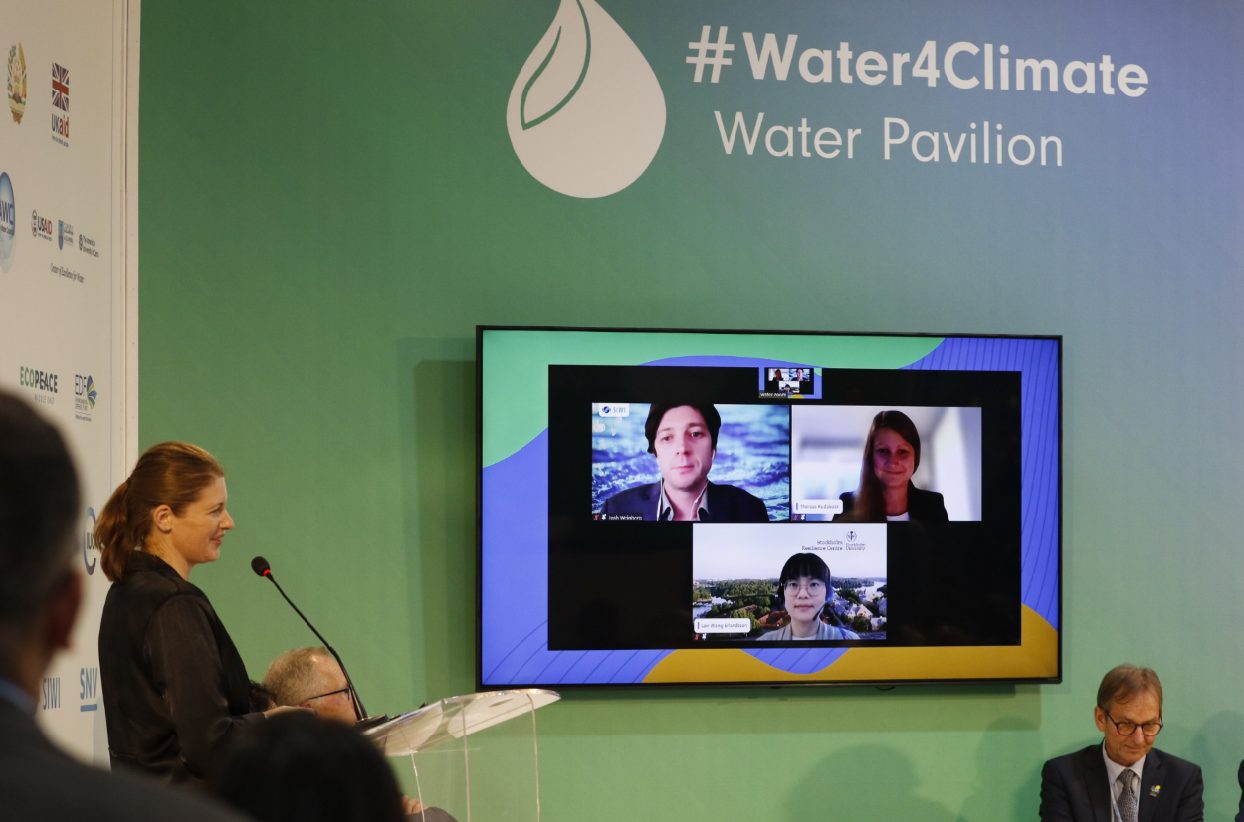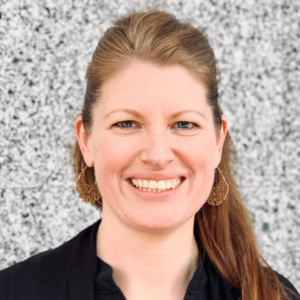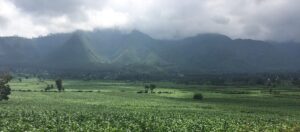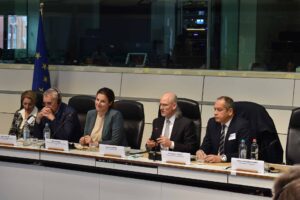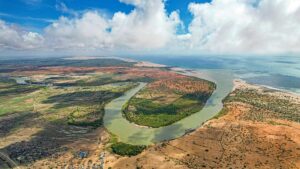Climate mitigation cannot succeed without water
Read the report
This is the first-ever summary of freshwater’s role in climate mitigation shows how countries must rethink their climate strategies.
The essential drop to Net-Zero: Unpacking freshwater’s role in climate change mitigation“We can learn so much from this report. We need to bring this knowledge to the negotiations”
The report gathers the latest science on the key role of water in mitigation and showcases how water smart climate mitigation can look across major sectors and how sustainable water management can reduce emissions.
SIWI’s Malin Lundberg Ingemarsson led the report and proudly said “Now it’s time to give my baby wings”, before thanking the large number of contributors. After the launch, one party representative emphasized: “We can learn so much from this report. We need to bring this knowledge to the negotiations”. The global launch of the report will be followed by a series of webinars in the run up to the United Nations Conference on Water in March 2023.
Eagerly anticipated, well received
Colleagues and peers expressed their excitement and anticipation for reading the report, with one follower on LinkedIn commenting: “Water security is at the centre of climate change mitigation, adaptation and biodiversity protection and must be emphasised equally by various stakeholders.” On Twitter, Stockholom University’s Baltic Sea Centre noted: “Better management of water is critical to tackling today’s food and energy crises, both of which are exacerbated by climate change.” Kezia Saunders from the Rivers Trusts summed it up perfectly: “Freshwater is our ally in climate action”. The report also received coverage in the Water Diplomat.
Meet the authors
SIWI’s Malin Lundberg Ingemarsson led the writing of the report and the editorial team which was made up of SIWI’s Josh Wienberg, WaterAid’s Dr Thérèse Rudebeck and Dr Lan Wang-Erlandsson from Stockholm Resilience Centre.
The report was a feat of collaboration between SIWI, Stockholm Resilience Centre (SRC), The Potsdam Institute for Climate Impact Research (PIK), United Nations Development Programme (UNDP), German Corporation for International Cooperation (GIZ) and Federal Ministry of Economic Cooperation and Development of Germany (BMZ)
